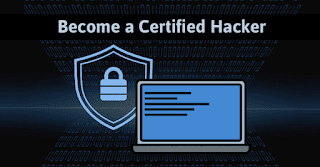Becoming an ethical hacker, also known as a white-hat hacker, involves acquiring a solid understanding of computer systems, networking, and security principles. The time it takes to become an ethical hacker can vary based on several factors, including your existing knowledge and experience, the level of expertise you aim to achieve, and the resources you have available for learning. However, here is a general outline of the typical path:
Foundational Knowledge (3-6 months): Start by gaining a strong foundation in computer networks, operating systems, programming languages (such as Python, C++, or Java), and basic security concepts. This period can vary depending on your prior experience and dedication to learning.
Security Fundamentals (6-12 months): Dive deeper into cybersecurity and gain a comprehensive understanding of concepts like encryption, secure coding practices, web application security, vulnerability assessment, and penetration testing methodologies.
Specialization (1-2 years): Choose a specialization within ethical hacking based on your interests and career goals. Some common specializations include network penetration testing, web application security, wireless security, or mobile application security. Focus on acquiring in-depth knowledge and hands-on experience in your chosen area.
Certifications (optional, but recommended): While not mandatory, certifications can enhance your credibility and demonstrate your expertise to employers. Some popular certifications for ethical hackers include Certified Ethical Hacker (CEH), Offensive Security Certified Professional (OSCP), and Certified Information Systems Security Professional (CISSP). Here is a place where you can learn. Cyber security Company Cyrex Tech.
Practical Experience (ongoing): Gain practical experience by working on real-world projects, participating in bug bounty programs, or joining capture-the-flag (CTF) competitions. Hands-on experience is crucial for building your skills and understanding how to apply your knowledge in real-world scenarios.
It's important to note that becoming an ethical hacker is an ongoing learning process due to the constantly evolving nature of cybersecurity. Staying updated with the latest threats, vulnerabilities, and defense techniques requires continuous education and self-improvement.
Remember that ethical hacking involves legal and ethical boundaries. Always ensure you are following applicable laws, obtaining proper authorization, and conducting your activities with integrity and professionalism.
How to become an ethical hacker without a degree?
While a degree can be helpful, it is not necessarily a requirement to become an ethical hacker. Many successful professionals in the field have gained their skills and knowledge through self-study and practical experience. Here are some steps you can take to become an ethical hacker without a degree:
Self-Study: Take advantage of the vast array of free and paid online resources available to learn about computer networks, operating systems, programming, and cybersecurity. Explore tutorials, online courses, blogs, forums, and YouTube channels dedicated to ethical hacking and cybersecurity.
Online Courses and Training: Enroll in reputable online courses and training programs specifically designed for ethical hacking. Platforms like Coursera, Udemy, and Cybrary offer courses ranging from beginner to advanced levels. Look for courses that cover topics such as network security, penetration testing, and ethical hacking methodologies.
Practice on Virtual Labs: Set up a virtual lab environment using platforms like VirtualBox or VMware to practice your skills in a safe and controlled environment. Experiment with different operating systems, networks, and security tools. Practice techniques like vulnerability scanning, penetration testing, and secure coding.
Capture-The-Flag (CTF) Challenges: Participate in CTF challenges and competitions. CTFs are designed to simulate real-world hacking scenarios and provide opportunities to solve security-related puzzles and challenges. Platforms like HackTheBox, TryHackMe, and OverTheWire offer CTF challenges for beginners and advanced users.
Build a Portfolio: Document your learning journey and practical experiences by building a portfolio. Include details about the projects you have worked on, any vulnerabilities you discovered and reported, and any certifications you have obtained. A strong portfolio can demonstrate your skills and expertise to potential employers or clients.
Networking and Community Involvement: Engage with the cybersecurity community by attending meetups, conferences, and workshops. Connect with professionals in the field through online forums and social media platforms like LinkedIn and Twitter. Networking can provide valuable insights, mentorship opportunities, and even job leads.
Remember, ethical hacking requires a strong sense of ethics, professionalism, and respect for the law. Always ensure that you are engaging in legal and ethical activities, obtaining proper authorization, and respecting privacy and confidentiality.

